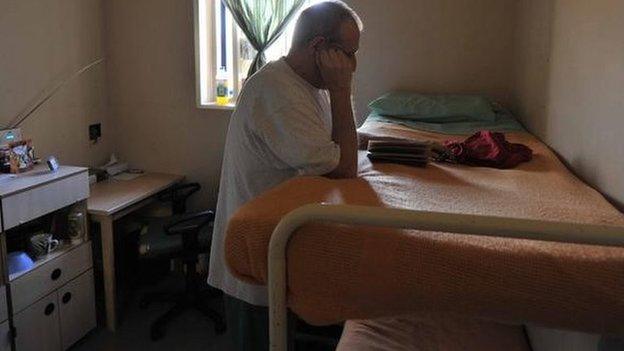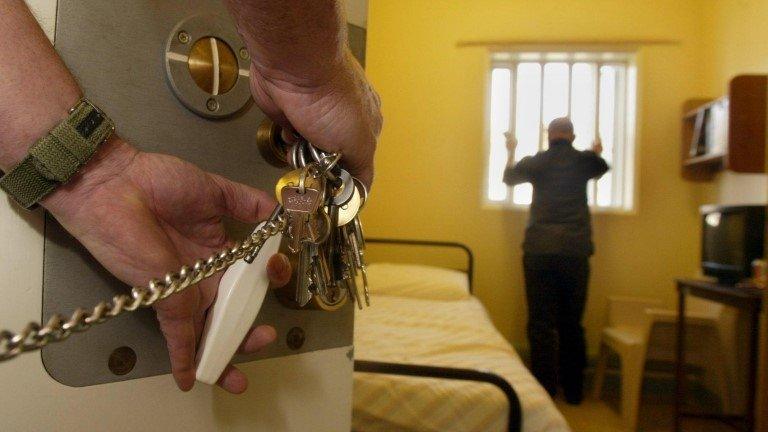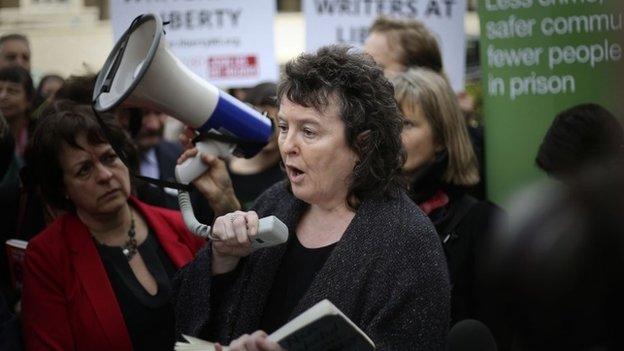Prisoner book restrictions scrapped by Michael Gove
- Published

Rules restricting the number of books a prisoner can have have been overturned by Justice Secretary Michael Gove.
A limit of 12 books per cell has been removed, while relatives and friends can now send books to inmates directly.
The rule changes, affecting more than 80,000 inmates in England and Wales, are meant to help prepare inmates for work when released.
Mr Gove said those "languishing in prison" were "potential assets" who could be "productive and contribute".
The scrapping of the rules from 1 September is one of Mr Gove's first key changes to prison policy since being appointed as justice secretary.
The restriction on receiving books directly came as a result of the Incentives and Earned Privileges scheme, introduced in November 2013 under Mr Gove's predecessor, Chris Grayling.
It prevented prisoners from receiving direct parcels unless there were "exceptional circumstances", such as a medical condition.
Although inmates were still allowed to use prison libraries, critics claimed they were often inadequately stocked and could be hard to access because of staff shortages.
That scheme was relaxed after a High Court ruling in December found that restricting prisoners' access to books was unlawful.
Subsequently, people were allowed to buy new books for prisoners through four approved retailers - Blackwell's, Foyles, Waterstones or WH Smith - who would send them to prisoners directly.
Mr Gove's changes will remove the limit of 12 books to a cell, as long as prisoners observe overall limits on the volume of personal possessions.
They will also allow people to send parcels of books directly to inmates without having to buy them through approved sources.
Governors will still be able to withhold any books which they deem "inappropriate, not conducive to rehabilitation, or contrary to the safe running of the prison".
And rules on receiving parcels other than book-only packages will remain.
'Transform lives'
Mr Gove said the most important thing that could be done for people in prison was ensure they were usefully employed, and received skills needed for employment, such as literacy and numeracy.
He cited Arthur Brooks of the American Enterprise Institute as a "big influence" on this thinking.
"He believes that we should see all human beings as assets, not liabilities," he said.
"I agree. Every individual has something to offer, every one of us can earn respect. People who are currently languishing in prison are potential assets to society. They could be productive and contribute.
"If we look at them only as problems to be contained we miss the opportunity to transform their lives and to save ourselves and our society both money and pain."
Chief executive of the Howard League for Penal Reform, Frances Cook, who had fiercely criticised the book restrictions, said the move was a "fantastic final coda" to its Books For Prisoners campaign., external
- Published1 February 2015

- Published5 December 2014

- Published28 March 2014
